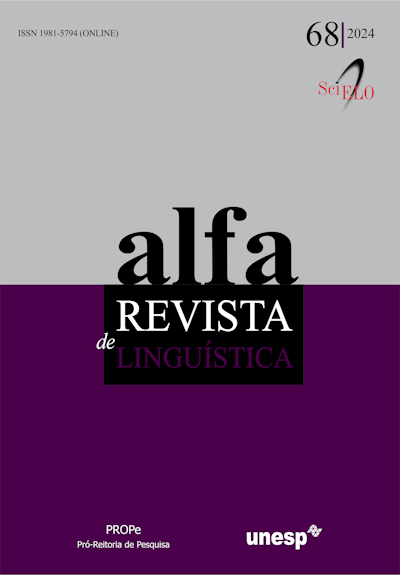Successful vocality
an analysis of sayings about the voice of Alan Rickman, Professor Snape from the Harry Potter saga
DOI:
https://doi.org/10.1590/1981-5794-e18268Keywords:
Voice, Success, Media, Success discourse, Alan RickmanAbstract
In this article, with the objective of describing and interpreting the process of production of meanings about the successful voice, the analysis of three texts extracted from their virtual domains, formulated and circulated by the Brazilian press: Vozeirão de Alan Rickman, ator genial do teatro, tinha vida própria (Cury, 2016), published in Folha de S. Paulo; Morre o ator inglês Alan Rickman, o professor Snape de “Harry Potter” (Morre, 2016), from O Popular (2016); e Estudo revela que Alan Rickman tinha a voz perfeita (Moreira, 2016), published in Galileo magazine. The theoretical-methodological of qualitative-interpretivist nature procedures adopted in the development of this study are based on the procedural framework of Discourse Analysis. In more specific categories of employment, the concepts of discourse, conditions of production, discursive formation and interdiscourse are mobilized. In view of the application of this conceptual framework to the selected texts, it was understood that, by highlighting the voice of a particular subject in an environment in which the effects of discourse manufacture images riddled with socially prestigious virtues due to the systematic proposition of feedback of meanings, achieving the ballast of success rewards with visibility and fame the subjects submitted to the embedding of properties defined by the media success regime of the voices.
Downloads
Downloads
Published
How to Cite
Issue
Section
License
Copyright (c) 2024 ALFA: Revista de Linguística

This work is licensed under a Creative Commons Attribution 4.0 International License.
Manuscripts accepted for publication and published are property of Alfa: Revista de Linguística. It is forbidden the full or partial submission of the manuscript to any other journal. Authors are solely responsible for the article's content. Translation into another language without written permission from the Editor advised by the Editorial Board is prohibited.

